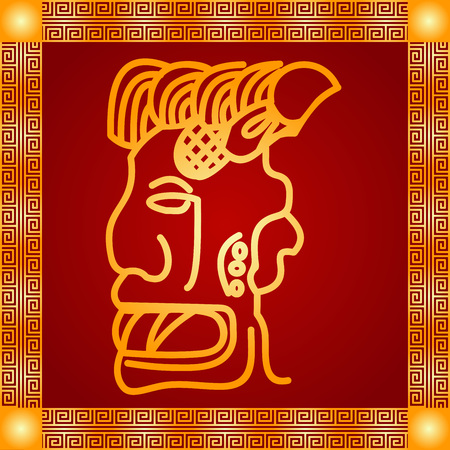Introduction to Kwanzaa
Kwanzaa is a vibrant and meaningful cultural holiday that holds a special place in the hearts of African American families across the United States. First celebrated in 1966, Kwanzaa was created by Dr. Maulana Karenga, a professor of Africana Studies, as a way to honor African heritage and foster unity within the Black community during a time of social change. The name “Kwanzaa” is derived from the Swahili phrase “matunda ya kwanza,” which means “first fruits,” reflecting its inspiration from traditional African harvest festivals. Over the years, Kwanzaa has grown beyond its origins to become an annual celebration that highlights cultural pride, family togetherness, and a shared commitment to building strong communities. As more families embrace the principles and practices of Kwanzaa, this holiday continues to evolve as an important tradition rooted in history, yet relevant to contemporary life in America.
2. The Seven Principles: Nguzo Saba
Kwanzaa is rooted in the celebration of the Nguzo Saba, or the Seven Principles, which serve as the heart and soul of this cultural holiday. These guiding values are designed to foster unity, self-determination, and a deep sense of purpose within African American families and communities. By practicing these principles throughout the seven days of Kwanzaa, families are encouraged to strengthen their bonds and embrace their heritage with pride.
| Principle (Swahili) | English Translation | Meaning & Family Impact |
|---|---|---|
| Umoja | Unity | Encourages togetherness among family members, friends, and the wider community. |
| Kujichagulia | Self-Determination | Empowers individuals to define themselves and make decisions that reflect their values and culture. |
| Ujima | Collective Work & Responsibility | Inspires families to support one another and work collectively for the common good. |
| Ujamaa | Cooperative Economics | Promotes supporting Black-owned businesses and economic growth within the community. |
| Nia | Purpose | Motivates families to set goals that benefit both themselves and their community. |
| Kuumba | Creativity | Encourages using creative talents to improve family life and community spaces. |
| Imani | Faith | Nurtures trust in oneself, ones family, and the collective journey toward a better future. |
The Nguzo Saba offers a meaningful framework for families to come together in reflection and celebration. Each day of Kwanzaa focuses on one principle, allowing families to share stories, engage in discussions, and participate in activities that bring these values to life. This tradition not only strengthens intergenerational ties but also fosters a sense of belonging, resilience, and pride in African American heritage. By embracing the Seven Principles during Kwanzaa, families cultivate unity, purpose, and lasting cultural connections that extend far beyond the holiday season.

3. Family Gatherings and Traditions
Kwanzaa is deeply rooted in the celebration of family, where generations come together to honor their heritage and strengthen community bonds. The heart of Kwanzaa lies in the home, with families gathering each evening to observe meaningful rituals that reflect African American values and history.
One of the most cherished traditions is lighting the kinara—a special candleholder with seven candles, each representing one of the Nguzo Saba (the Seven Principles). Each night, families light a new candle, sparking conversations about unity, self-determination, and collective responsibility. This simple yet powerful act connects elders, adults, and children through a shared sense of purpose and cultural pride.
Intergenerational Connections
Kwanzaa celebrations provide a unique space for intergenerational learning and connection. Elders often share stories from their own lives or pass down folktales that teach important life lessons. Through storytelling, younger family members gain insight into their ancestry and learn how to carry these traditions forward. These moments foster respect for elders and reinforce the value of oral history within African American culture.
Traditional Practices That Unite
Sharing meals is another cornerstone of Kwanzaa gatherings. Families prepare and enjoy dishes inspired by African cuisines—such as jollof rice, collard greens, and sweet potatoes—bringing everyone together around the table. The act of preparing food collaboratively and giving thanks highlights gratitude, abundance, and the importance of supporting one another.
Creating Lasting Memories
Whether it’s lighting candles, telling stories, or sharing favorite recipes, these family-centered traditions make Kwanzaa a time of reflection and joy. They help reinforce identity, build lasting memories, and ensure that the wisdom and warmth of previous generations continue to shape the future.
4. Creative Expressions: Art, Music, and Cuisine
Kwanzaa is a vibrant celebration that allows African American families to honor their heritage through creative expressions. Each year, homes come alive with the colors, sounds, and flavors of the season as families infuse art, music, and traditional foods into their gatherings. These elements not only pay tribute to African roots but also foster unity and joy among loved ones.
Artistic Traditions
Many families celebrate Kwanzaa by decorating their homes with handmade crafts such as woven baskets, beaded jewelry, and colorful kente cloths. Children often participate in creating symbolic art projects—like mkeka mats or kinara candle holders—that reflect the principles of Kwanzaa. Displaying African-inspired paintings and sculptures helps reinforce cultural pride and sparks meaningful conversations about heritage.
The Soundtrack of Kwanzaa
Music plays a central role in Kwanzaa festivities. Families sing traditional songs like “Lift Every Voice and Sing,” perform African drumming circles, or even host talent shows featuring gospel, jazz, and R&B performances. These musical moments invite everyone to join in, encouraging the sharing of stories through rhythm and song.
Popular Musical Elements at Kwanzaa Gatherings
| Type of Music | Description |
|---|---|
| African Drumming | Symbolizes unity and communal celebration; often involves djembe or conga drums. |
| Spirituals & Gospel | Reflects hope, resilience, and the historical journey of African Americans. |
| Jazz & R&B | Showcases creative innovation rooted in Black culture. |
Culinary Delights: Savoring Tradition
No Kwanzaa celebration would be complete without a delicious feast featuring dishes passed down through generations. The holiday table is often filled with soulful classics like collard greens, sweet potatoes, black-eyed peas, fried chicken, and cornbread. Many families add their own twist to recipes while honoring ancestral flavors and food customs.
Traditional Kwanzaa Foods
| Dish | Cultural Significance |
|---|---|
| Collard Greens | Represents prosperity and good fortune. |
| Black-Eyed Peas | Brought from West Africa; symbolizes luck for the new year. |
| Soul Food Classics (e.g., Fried Chicken) | Connects family gatherings with comforting traditions. |
| Sweets (e.g., Sweet Potato Pie) | Adds warmth and sweetness to the celebration. |
Embracing Creativity Together
Kwanzaa’s creative expressions—artwork displayed with pride, music performed with heart, and meals lovingly prepared—remind families to cherish their unique history. Through these traditions, every household can experience the spirit of Kwanzaa in a personal and meaningful way while strengthening connections across generations.
5. Passing Down Heritage to the Next Generation
Kwanzaa offers a unique opportunity for parents and elders in African American families to nurture cultural pride and preserve heritage by actively involving younger generations in its traditions. Through shared rituals, storytelling, and hands-on participation, children learn about the core values of Kwanzaa and their significance within the broader context of African American history.
The Power of Storytelling
During Kwanzaa, elders often gather children around to share stories about their ancestors, family journeys, and the struggles and triumphs that have shaped their community. These narratives are not only educational but also instill a sense of identity and belonging, helping young people see themselves as part of a larger legacy.
Hands-On Learning Through Rituals
Children are encouraged to take active roles in lighting the kinara candles, preparing traditional meals, and participating in craft-making. These activities provide meaningful ways for kids to connect with their heritage through sensory experiences and reinforce the principles of unity, self-determination, and collective work embodied in the Nguzo Saba—the Seven Principles of Kwanzaa.
Encouraging Dialogue and Reflection
Parents initiate discussions about the meaning behind each principle as they’re observed throughout the week. Whether it’s reflecting on how to practice cooperative economics or brainstorming ways to give back to their community, these conversations help children internalize important values and apply them beyond the holiday season.
Cultivating Lasting Cultural Pride
By intentionally weaving these practices into their Kwanzaa celebrations, families ensure that children grow up with a strong appreciation for their roots. This ongoing exchange between generations fosters confidence and cultural awareness that will guide young people as they carry forward these cherished traditions.
6. Kwanzaa in the Broader American Community
Kwanzaa, while rooted in African American heritage, has become an important part of the broader American cultural landscape. As more people learn about the principles and practices of Kwanzaa, its celebration transcends individual families and neighborhoods, reaching schools, community centers, and public spaces across the nation. This growing recognition promotes inclusivity by inviting Americans from diverse backgrounds to engage with and honor African American traditions.
Fostering Inclusivity and Understanding
By sharing Kwanzaa’s values—such as unity, self-determination, and collective responsibility—the celebration helps build bridges between communities. Many organizations and institutions host Kwanzaa events open to all, encouraging dialogue and participation regardless of cultural background. These shared experiences foster greater understanding and appreciation for the richness of African American culture within the tapestry of American society.
Promoting Mutual Respect
As Kwanzaa becomes more visible in the wider American context, it provides opportunities for mutual respect and learning. Educators incorporate Kwanzaa lessons into curricula, businesses acknowledge the holiday in their seasonal messages, and local governments sponsor multicultural celebrations. Through these efforts, Kwanzaa serves not only as a time for African American families to honor their roots but also as a moment for all Americans to reflect on values that unite us—family, community, and hope for a better future.
The Ongoing Impact
Kwanzaa’s integration into the broader American community continues to shape conversations about diversity, inclusion, and respect for different cultural traditions. As we celebrate together, we move closer to a society where everyone’s heritage is recognized and valued. In this way, Kwanzaa offers lasting lessons that reach far beyond its seven days—reminding us each year of the importance of coming together in unity and mutual respect.


